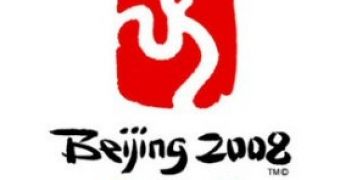As the Beijing Olympics closed yesterday, this is as good a time as ever to draw the line and analyze the bad and good of what was the first edition of the Games to have global digital coverage. Although international forums said that giving a communist country the right to host such an important event could have repercussions on human rights, the Chinese authorities assured that, during the Olympics, special regulations would be made in order to create perfect conditions for them to be respected.
One of the measures regarded free access to the Internet for all foreign and China-based journalists. Although some restrictions were lifted, the webpages of press agencies and dissident websites describing, for example, the Vietnam situation, could not be accessed as they had been banned.
"We acknowledge that the situation has not been perfect," Jacques Rogge, the president of the International Olympic Committee said, talking about the Internet censorship during the Olympics. "But we acknowledge, at the same time, that the situation is a major change." Furthermore, the IOC hopes that the websites that have been unblocked on the special occasion of the Games will remain like this now that they are over.
Nevertheless, human rights organizations have doubts about the conduct of the IOC during the Olympics, which, they say, allowed the censorship to persist. "This repression will be remembered as one of the defining characteristics of the Beijing games. The International Olympic Committee will have to accept much of responsibility for this failure. We think it is vital that the IOC's members should draw the necessary conclusions in their choice of a president to succeed Jacques Rogge when his term of office is up in a year's time." said a press release from Reporters Without Frontiers.
Restricted access to certain websites was not the only concern of international organizations. The incarceration of several cyber-dissidents, along with the computer tricks employed in an attempt to make the most of the ceremonies (such as lip syncing and computer generated fireworks) generated anything but good press. Amnesty International pointed the finger at Chinese officials, "As the Beijing Olympics ended, Amnesty International today accused the Chinese authorities of prioritizing image over substance as it continued to persecute and punish activists and journalists during the Games."
In a recent statement, the IOC underscored that the committee had good intentions, but poor resorts. "IOC had made its position clear to Chinese authorities but cannot force changes on sovereign governments."

 14 DAY TRIAL //
14 DAY TRIAL //